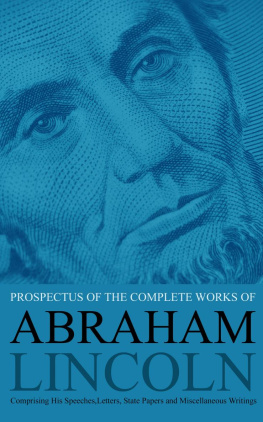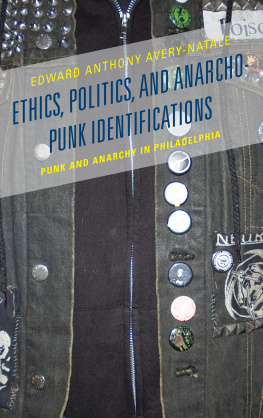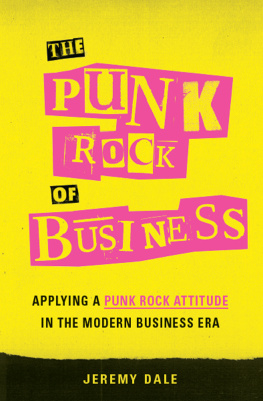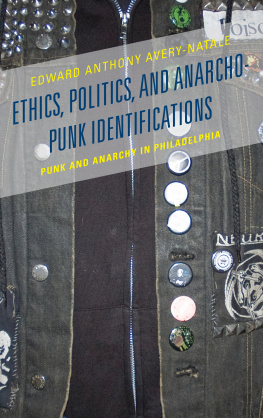Praise for The Humorless Ladies of Border Control
A truly remarkable book. On the surface, its a tour diary of shows around the wilder reaches of Eastern Europe and Russia. In actual fact, however, Franz has written a profound and perceptive travelogue in the vein of Paul Theroux or Rebecca West; like them, he teaches you about the places he visits, about the people he meets, about a forgotten but fascinating corner of world culture, and ultimately, about himself. Frank Turner, author of The Road Beneath My Feet
In this amazing road tale, Nicolay captures how it feels for a wandering artist, scrounging in the underground punk scenes of Russia and the Balkanssleepless nights and shaky trains, strong beer and unsavory companionswatching history turn inside out. Rob Sheffield, author of Love Is a Mix Tape
If there isnt already a shelf for Classic Punk Literature, we need to build it and stock it with Franz Nicolay. Part low-budget tour diary and part Slavic history lesson, this book is a love letter to the punk vie bohme. Amanda Palmer, author of The Art of Asking
Funny and wistful, The Humorless Ladies of Border Control is an engrossing romp that casts fresh eyes on Old World cultures rich in paradox. Nicolay taps into the current cultural zeitgeist in the best travelogue tradition, with vivid scenes capturing the absurdities of daily life in the context of history and a deft reading of some of the most important cultural figures. Gregory Feifer, author of Russians

2016 by Franz Nicolay
All rights reserved.
No part of this book may be reproduced, in any form, without written permission from the publisher.
Some material contained in this book first appeared in Vice (www.vice.com), Noisey (noisey.vice.com), The Ruckus (www.whatstheruckus.com), the chapbook Complicated Gardening Techniques (Julius Singer Press), and the essay collection The Road Most Traveled (Milner Crest).
Map by Ariana Nicolay
Many thanks to Emily Meg Weinstein for early readings, edits, and suggestions.
Requests for permission to reproduce selections from this book should be mailed to: Permissions Department, The New Press, 120 Wall Street, 31st floor, New York, NY 10005.
Published in the United States by The New Press, New York, 2016
Distributed by Perseus Distribution
LIBRARY OF CONGRESS CATALOGING-IN-PUBLICATION DATA
Names: Nicolay, Franz.
Title: The humorless ladies of border control: touring the punk underground from Belgrade to Ulaanbaatar / Franz Nicolay.
Description: New York: New Press, 2016. | Includes bibliographical references.
Identifiers: LCCN 2016014069 (print) | LCCN 2016014551 (ebook) | ISBN 9781620971802 (e-book)
Subjects: LCSH: Nicolay, FranzTravelEurope, Eastern. | Nicolay, FranzTravelRussia (Federation) | Nicolay, FranzTravelMongolia. | Europe, EasternDescription and travel. | Russia (Federation)Description and travel. | MongoliaDescription and travel.
Classification: LCC ML410.N615 A3 2016 (print) | LCC ML410.N615 (ebook) | DDC 781.66092dc23
LC record available at http://lccn.loc.gov/2016014069
The New Press publishes books that promote and enrich public discussion and understanding of the issues vital to our democracy and to a more equitable world. These books are made possible by the enthusiasm of our readers; the support of a committed group of donors, large and small; the collaboration of our many partners in the independent media and the not-for-profit sector; booksellers, who often hand-sell New Press books; librarians; and above all by our authors.
www.thenewpress.com
Book design and composition by Bookbright Media
This book was set in Minion Pro and Gloucester
Printed in the United States of America
10 9 8 7 6 5 4 3 2 1
For Maria: traveling companion, musical compatriot, translator,
friend, trusted first reader, and beloved wife, without whom
none of this would have been possible.

Contents
Were I in the place of the emperor, I should not be content with forbidding my subjects to complain; I should also forbid them to sing, which is a disguised mode of complaining. These accents of lament are avowals, and may become accusations. The Marquis de Custine
The gentle reader cannot know what a consummate ass he can become until he goes abroad. Mark Twain

I became a professional traveler. It said musician on my tax returns, but if you drew a bar graph illustrating how I spent my years, music would be a matchbox, and travel and waiting twin towers. I stopped having real friends. My old friends still saw one another, met for drinks, fell in and out of lovethey just did it without me. And my new friends were either friends of necessitywe were trapped in the same rolling boxesor of transience, necessarily shallow relationships since I wouldnt see them until their own orbit blipped through mine again. I understood what it was like to be dead, wrote Paul Theroux of the itinerant life. People might miss you, but their lives go on without you.
To those of an unsettled, anxious, or fretful temperament, a life of perpetual travel is a convenient Gordian solution. The insistent flicker of unease, the failing fluorescent bulb holding back despair, is at home a problem, even a sickness, crying for a solution: a new job, a new love, a new new, the unanswerable. But in travel, acknowledged to be at best uncomfortable and disorienting and at worst dangerous, one finds a convenient and all-encompassing skeleton key to the existential lock: There is always gain, said Montaigne, in changing a bad condition for an uncertain one. Out of sorts? Blame the jet lag. Tired? Blame the bunk on last nights train. Lashing out at those around you? Those around you are strangers and dont understand a word youve said anyway.
Having dispensed with the existential questions, we travelers are free to indulge nearly any pursuit that doesnt require possessions. Many of us settle on voyeurism, the flip side of solipsism. We adopt a Gods-eye view, lordly in our solitude. We spend an afternoonby necessity or accidentin a strange city, passing snap judgment on a society based on its customer service, road maintenance, the fashion sense of thirty minutes worth of passersby at a caf, manners of queueing and bargaining, pornography, or street-sign graphic design. We generalize from particulars and approach individuals armed with preprogrammed stereotypes. Confident in our conclusions, we claim an intuitive gift. It is true that I have not fully seen, wrote the Marquis de Custine in his Russian travelogue, but I have fully divined. We claim the privilege of the inquisitive foreigner, the dignified heritage of Herodotus and Alexis de Tocqueville. We may get some details utterly wrong but still capture something of the larger truthor, conversely, misrepresent the larger story but preserve some quotidian or piquant details. We ask leading questions of innocents, then spend a suspiciously long time in the bathroom scribbling out their answers or pecking them into a phone. We are sketching what V.S. Pritchett called the human architecture, gathering basketfuls of Ford Madox Fords little bits of uncompleted lives, trying to patch the holes weve torn in our own lives by our leaving with rags weve picked from those of the people we pass. But let the last word on wanderlust go to Melvilles Ishmael:
Next page













